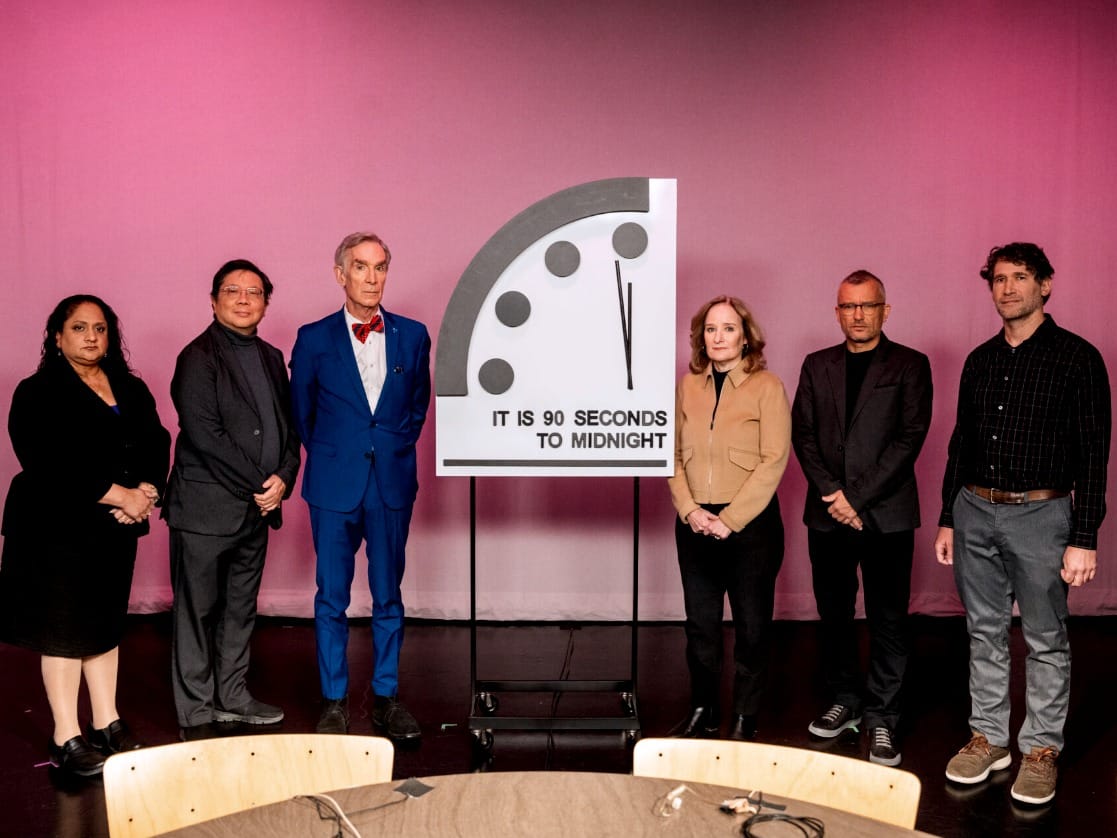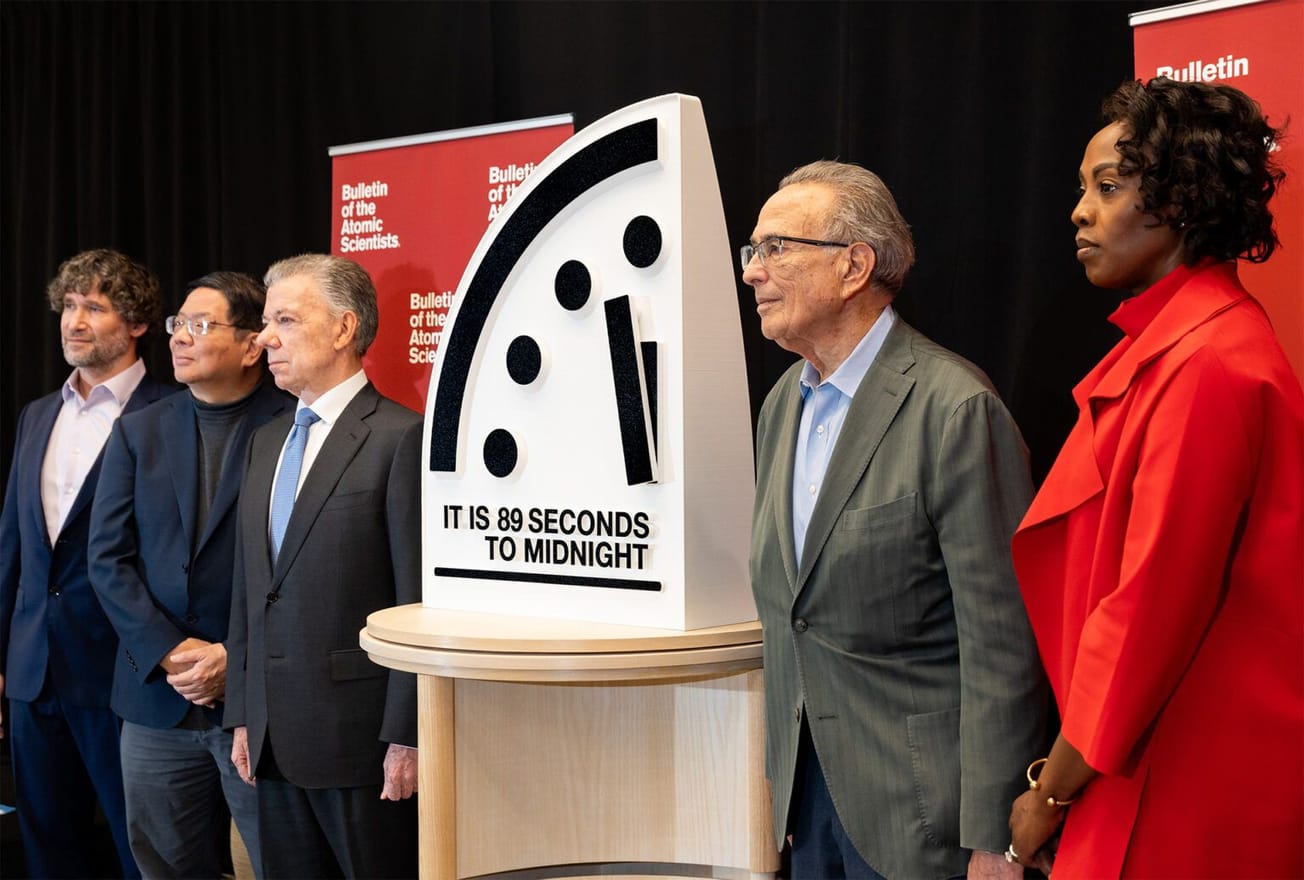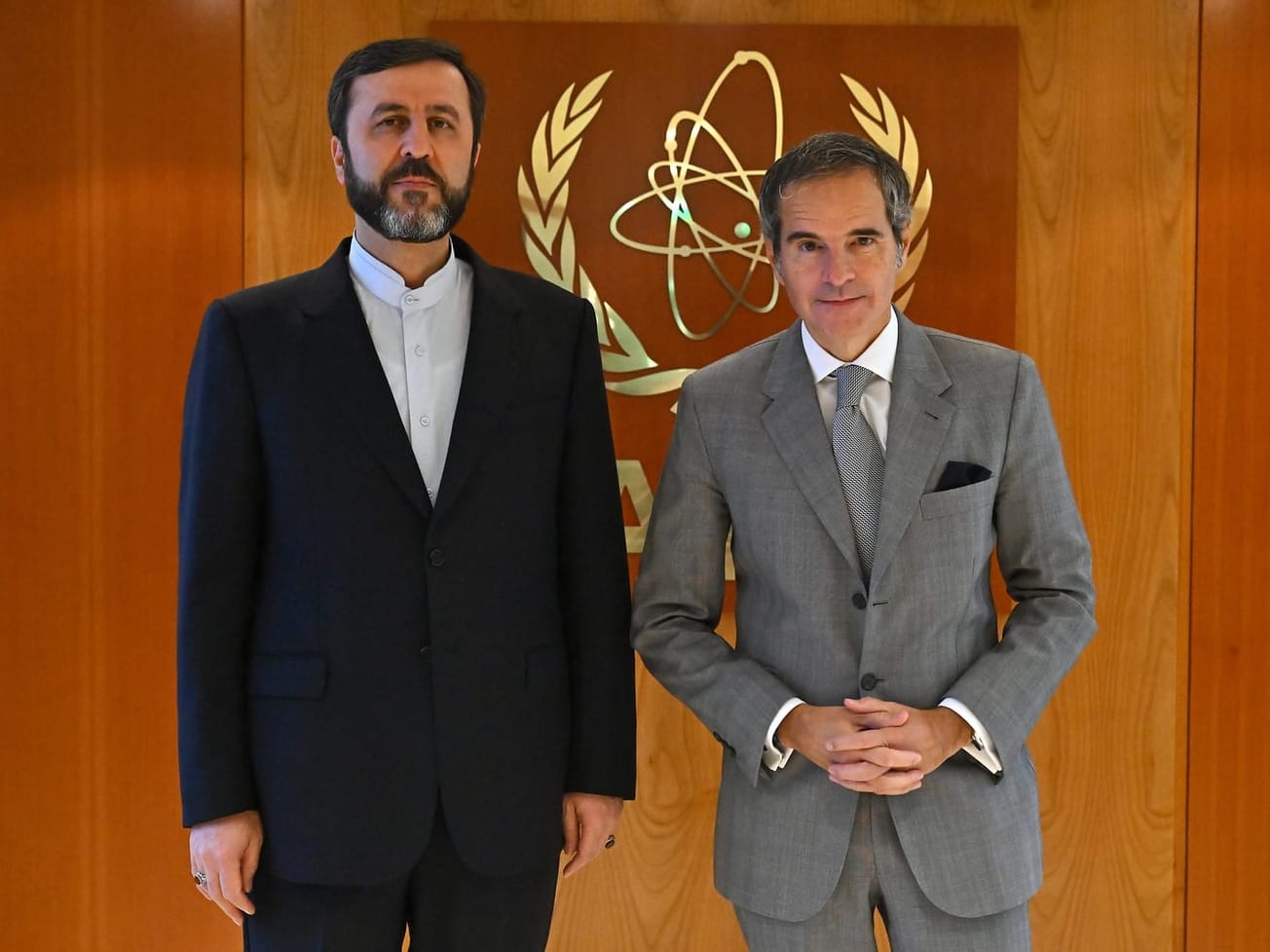For a second year in a row, a science advocacy organization assessed that the world is just "90 seconds to midnight," the symbolic hour of apocalypse.
The Bullet of the Atomic Scientists' famous "Doomsday Clock" still has its metaphorical hands set at the closest point ever to midnight due to wars in Europe and the Middle East, the proliferation of nuclear weapons, the spread of climate-related disasters and generative artificial intelligence.









